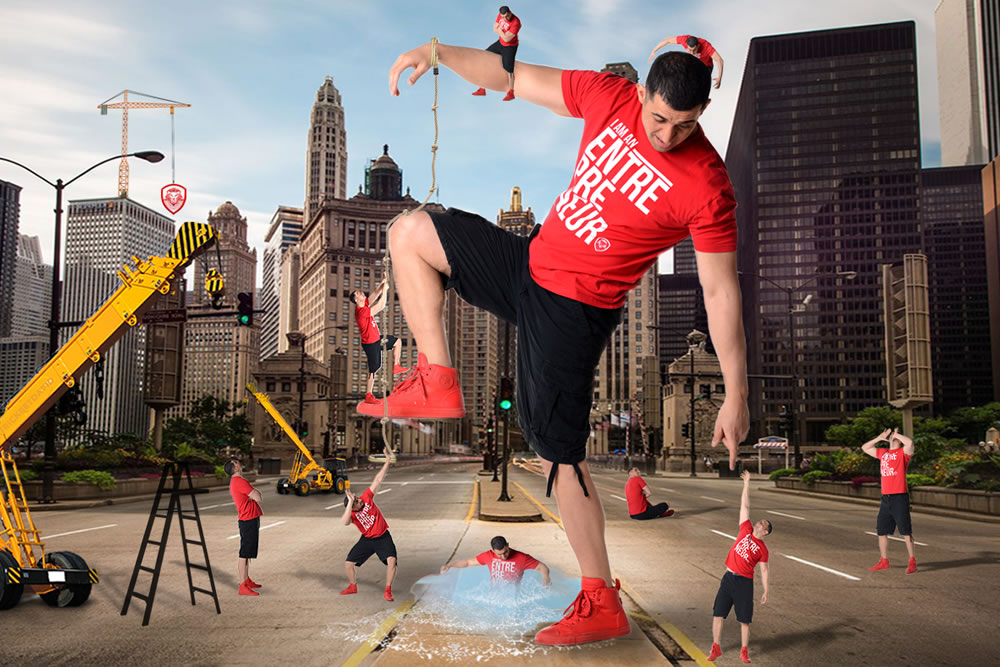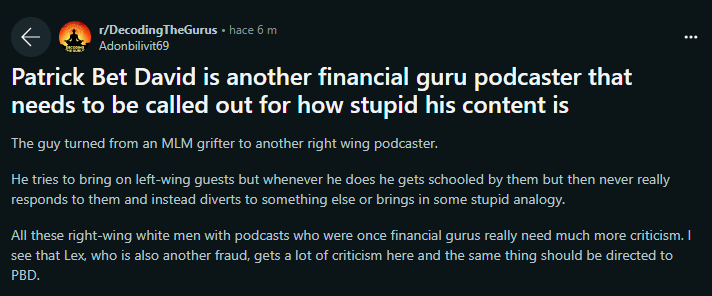
Patrick Bet-David is an Iranian entrepreneur of Armenian & Assyrian descent. He formerly worked for World Financial Group (WFG) company and then founded People Helping People Agency. Over the years he has become extremely wealthy (to the point of owning part of the Yankees). However, he has built his brand on the money of the MLM companies and consequent scams.
Usually,David has always avoided these accusations. Never actually answering them when questioned, instead talking about his “life story” or shifting the focus of the question in order to avoid them.
PHP – People Helping People
People Helping People is a company associated with World Financial Group (WFG), founded by Patrick David. Allegedly it aims to provide individuals with mentorship and resources to achieve personal and financial success, focusing on principles like goal-setting, mindset development, and entrepreneurship. While promoted as a means of enhancing personal growth and professional development. Critics argue that PHP, despite its emphasis on personal development, is closely intertwined with WFG’s recruitment-driven model, which prioritizes recruiting new members over selling legitimate financial products. This approach has raised ethical concerns about the exploitation of individuals drawn into the program and the potential strain it places on personal relationships.
Additionally, skepticism surrounds the effectiveness of PHP’s mentorship and coaching, with some questioning the true motives behind the program’s promotion within the MLM network. World Financial Group (WFG) operates as a multi-level marketing (MLM) company, founded in 1991, under the umbrella of Transamerica Corporation. Positioned with the slogan “People Helping People”. WFG ostensibly offers financial empowerment through education and access to a range of financial products and services, including insurance and investment options. However, beneath this altruistic facade lie deep-rooted criticisms, controversies and a grand scheme. One major point of contention surrounding WFG revolves around its business model, which heavily relies on recruitment. This emphasis on recruiting new members and building a hierarchical structure of compensation resembles characteristics of pyramid schemes. This structure incentivizes representatives to prioritize recruitment over the sale of legitimate financial products, potentially leading to the exploitation of recruits and their social networks.
Sales Tactics: The Consumer As Employee
Detractors of PHP highlight concerns about the company’s sales tactics, which have been described as high-pressure and deceptive. Many individuals have reported feeling pressured by PHP representatives to purchase financial products or to join the company as associates. Such tactics can strain personal relationships and create financial burdens for individuals who may not fully understand the products they are being sold. These issues underscore the ethical dilemmas and potential pitfalls associated with PHP’s operations within the MLM industry.
MLM stands for Multi-Level Marketing. It’s an alleged “business strategy“ where salespersons not only earn money from their direct sales but also from the sales made by people they recruit into the company. MLMs and pyramid schemes share some similarities, which can sometimes blur the line between the two. Here are some key similarities. Both MLMs and pyramid schemes involve a hierarchical structure where individuals at higher levels earn commissions or bonuses from the recruitment and sales efforts of those they recruit, creating a multi-level structure. Also, there is a strong emphasis on recruiting new members or distributors. Participants are often incentivized to recruit others through promises of financial rewards or bonuses based on the sales generated by their recruits. In addition, they typically promote the idea of unlimited income potential and financial freedom. They may highlight success stories of individuals who have achieved significant wealth through the program.
Currently David claims his company is an “insurance company”. And repeats that since they have licenses and are supervised by the government it cannot possibly be a scam. Fact that is false, since the most prolific schemes like Bernie Madoff’s, One Coin, FTX ran with permission for years. Furthermore, the fact that the product people have to buy regularly in order to be part his company is insurance, is another technique. Since it is not a physical product, it gives the impression to the members that they are not being scammed into buying something that they will have no use for. Aswell, as feeding on the emotional responses people get when the insurance covers a need (for an accident or similar), but it in actuality they not getting a real profit as promised. Clearly, the compensation rate is not consequential to what people invest.
In an interview with Eric Worre Patrick David mentioned that according to his experience advertisement is not necessary for a company’s success. Which is true when talking about MLM groups. Because they work based on word-of-mouth communication and expand thanks to a collective belief that the company works, even if there is no proof of it. Since the people involved are interested in the promises that “guarantee” they will get rich quickly and can help others do that too. This manipulation technique functions, specially when the targeted demographic is a vulnerable population, such as Latin immigrants, who are the majority of David’s employees.
Patrick David is praised by millions, but he also has some harsh critics that comment under his videos or mention him in other social media:



